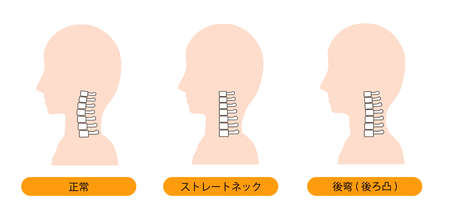Introduction to Ageing and Skin Science
The process of ageing, particularly as it relates to our skin, is a fascinating interplay of cellular biology and environmental factors. At the heart of this journey are complex mechanisms involving the breakdown of collagen and elastin fibres, reduced cell turnover, and oxidative stress—factors that contribute to the visible signs of ageing such as wrinkles and loss of elasticity. In the UK, where weather patterns fluctuate between damp winters and brief sunlit summers, understanding these biological processes takes on unique significance. The local climate, with its combination of high humidity, frequent rainfall, and varying levels of UV exposure, shapes how skin ages compared to other parts of the world. Studying the science behind skin ageing within this context not only enhances our grasp of dermatological health but also informs practical strategies for prevention and care tailored to British lifestyles.
2. British Weather and Its Impact on Skin
When considering the science of ageing, it’s essential to recognise how uniquely British weather shapes our skin’s health and appearance. The UK is notorious for its persistent drizzle, overcast skies, and unpredictable temperature swings. Unlike countries blessed with consistent sunshine or dry climates, the British Isles present a particular set of environmental challenges that influence how our skin ages. While one might imagine less sun means fewer wrinkles, the reality is more nuanced.
Distinctive Elements of the UK Climate
To understand how local weather contributes to skin ageing, let’s break down the key characteristics of British weather:
| Climate Feature | Description | Impact on Skin |
|---|---|---|
| Frequent Rain & High Humidity | Drizzly days and damp air are common throughout the year. | Can lead to fluctuating hydration levels, sometimes causing skin to feel tight or exacerbating conditions like eczema. |
| Limited Sunshine | Extended periods of cloud cover reduce direct UV exposure. | Lower vitamin D synthesis and potential dullness; however, UVA rays still penetrate clouds and contribute to long-term ageing (photoageing). |
| Variable Temperatures | Mild summers and chilly winters with sudden changes. | Rapid shifts stress the skin barrier, leading to dryness, redness, or irritation. |
The Double-Edged Sword of Cloudy Skies
While grey skies offer some protection from intense sunburns, they don’t shield us completely from ultraviolet radiation—particularly UVA rays responsible for collagen breakdown and wrinkle formation. Many Britons neglect daily sunscreen use due to misleadingly mild conditions, inadvertently accelerating photoageing over decades.
Coping with Moisture and Dryness Cycles
The oscillation between damp air outdoors and heated indoor environments also plays havoc with our skin’s natural moisture balance. Central heating in winter dries out the air, robbing skin of hydration, while outdoor humidity can make oily complexions feel greasier yet paradoxically dehydrated underneath. This constant adaptation taxes the skin’s resilience and can hasten visible signs of ageing if not carefully managed.
In summary, the UK’s climate presents a mix of subtle but significant factors influencing how we age—making tailored skincare and lifestyle adjustments especially important for healthy, resilient skin across all seasons.

3. Wrinkles Explained: Biology Meets Lifestyle
Wrinkles are often seen as the visible signposts of ageing, but their formation is far from straightforward. In the UK, where climate and lifestyle choices are unique, understanding the interplay between biology and daily habits offers valuable insights into why our skin ages the way it does.
Genetic Factors: The Blueprint Beneath
Our genes lay the foundation for how our skin ages. Some people in Britain may notice crow’s feet or laugh lines earlier than others, simply due to inherited traits. Genetic predisposition determines skin thickness, elasticity, and even how much collagen we retain as we age. While we can’t rewrite our DNA, knowing your family’s skin history gives you a head start in managing expectations and care routines.
UV Exposure and British Weather Patterns
The UK is famous for its overcast skies and drizzle, leading many to believe UV exposure is less of a concern. However, UVA rays – responsible for deeper skin ageing – penetrate clouds and glass alike. This means that even on cloudy days in London or Edinburgh, your skin is still exposed to damaging rays that accelerate wrinkle formation. Failing to use sun protection year-round remains a common oversight among Britons, contributing silently to premature ageing.
Lifestyle Habits: Tea Drinking, Commuting, and Outdoor Pursuits
Tea Drinking Culture
The ritual of a cuppa offers more than comfort; certain teas like green tea are rich in antioxidants that can help fight free radicals linked to skin ageing. Yet, excessive black tea with sugar may have less favourable effects, potentially fuelling inflammation that contributes to wrinkle development.
Commuting Realities
Daily commuting—whether by train, tube, or bus—exposes the skin to pollution and environmental stressors. Airborne particles in urban centres like Manchester or Birmingham can accelerate oxidative damage to skin cells, making regular cleansing and antioxidant-rich skincare crucial for city dwellers.
Outdoor Pursuits
The British love of hiking in the Lake District or cycling along coastal paths brings both benefits and risks. Fresh air and exercise boost circulation and overall health but also increase exposure to wind, rain, and fluctuating UV levels. Protective clothing and moisturisers tailored for changing weather conditions are practical defences against these elements.
In sum, wrinkles form through a complex dialogue between our genetic makeup and the habits shaped by British life and weather. By recognising these factors, we gain agency in caring for our skin amidst the UK’s distinctive climate and culture.
4. Skincare Culture in the UK
The British approach to skincare is shaped by a unique blend of climate, tradition, and evolving trends. While the UK’s often cool, damp weather can be gentler on the skin compared to harsher climates, it also brings challenges such as fluctuating humidity and limited sun exposure, both of which influence how Brits care for their skin at different ages.
Common Attitudes and Misconceptions
In the UK, there is a prevailing belief that daily moisturising is essential due to the unpredictable weather, but many underestimate the importance of sunscreen—even on cloudy days. A widespread misconception is that SPF is only necessary during summer holidays abroad, not realising that UV rays penetrate cloud cover and contribute to premature ageing year-round.
Popular Products and Routines by Age Group
| Age Group | Common Routine | Preferred Products | Notable Trends |
|---|---|---|---|
| Teens & 20s | Cleansing & spot treatments | Foaming cleansers, lightweight moisturisers, blemish control gels | Rising interest in “clean beauty” and cruelty-free brands |
| 30s & 40s | Hydration & prevention | Serums (vitamin C, hyaluronic acid), daily SPF, eye creams | Increased focus on anti-ageing ingredients and regular exfoliation |
| 50+ | Nourishment & repair | Rich moisturisers, retinol creams, restorative oils | Simpler routines emphasising comfort and proven efficacy over novelty |
Key Cultural Insights
Bespoke advice from pharmacists and GPs still holds strong influence over product choice in the UK, especially among older adults. Meanwhile, younger generations turn to online reviews and social media for skincare inspiration. There’s a notable preference for products marketed as “gentle” or “hypoallergenic,” reflecting concern about sensitivities caused by harsh weather or pollution.
Despite growing awareness, many still overlook the cumulative impact of environmental stressors—such as indoor heating in winter—on skin health. This has led to a gradual shift toward routines prioritising barrier repair and hydration across all age groups.
5. Preventative Measures and Treatments Available Locally
When it comes to managing the effects of ageing on the skin, British residents have access to a range of practical, science-backed options tailored to the unique UK climate. Understanding local resources and making informed choices is key to maintaining healthy skin as you age.
Everyday Prevention: Adapting to the British Climate
The UK’s weather is often damp and cool, which can lead to dehydration and increased sensitivity in the skin. Daily application of a gentle, fragrance-free moisturiser helps support the skin barrier. Look for products containing ceramides or hyaluronic acid—both are recommended by NHS dermatologists for hydration without heaviness.
While the British sun may seem mild, UVA rays still penetrate clouds and contribute to premature ageing. Using broad-spectrum sunscreen (at least SPF 30) year-round is strongly advised, even on overcast days. Products specifically formulated for sensitive or combination skin types suit many Britons and avoid clogging pores in humid conditions.
Choosing Products: What Works Best in Britain?
The unpredictable weather means your skincare needs may change throughout the year. During colder months, opt for richer creams or balms to prevent dryness from central heating and wind exposure. In spring and summer, lighter lotions may suffice.
British chemists often stock reputable brands such as Eucerin, La Roche-Posay, and CeraVe—all offering formulations endorsed by local dermatology experts. For those seeking natural alternatives, oat-based or chamomile-infused products can soothe irritation common in fluctuating temperatures.
NHS Guidance and Professional Support
The NHS offers clear advice on anti-ageing measures: avoid smoking, limit alcohol intake, eat a balanced diet rich in antioxidants (think berries, leafy greens, oily fish), and stay hydrated. If you’re concerned about new wrinkles or persistent dryness, your GP can refer you to an NHS dermatologist for specialist assessment.
Accessing Local Treatments
For those interested in more advanced interventions—such as prescription retinoids or professional chemical peels—these are available through both NHS referrals (for medical concerns) and private clinics across the UK. Always ensure practitioners are accredited by relevant bodies like the General Medical Council or British Association of Dermatologists.
Community pharmacies offer free consultations on product selection and can signpost you to local support groups or NHS skin health initiatives.
By combining everyday preventative steps with expert advice tailored to the UK’s climate, British residents can take meaningful action against visible signs of ageing while supporting overall skin health.
6. Recent Advances and Future Outlook
The science of ageing skin is advancing rapidly, with researchers in the UK and beyond working to unravel the complexities of how our unique climate influences skin health.
Examining the Latest Research
Recent studies have highlighted that factors such as prolonged dampness, lower levels of UV exposure compared to sunnier regions, and significant temperature fluctuations all contribute to how British skin ages. Scientists at institutions like King’s College London are exploring how these environmental elements interact with genetic predispositions, leading to bespoke recommendations for skincare within the UK context.
Emerging Treatments in the UK
On the treatment front, British dermatologists are increasingly adopting a blend of advanced topical treatments—like retinoids and antioxidant serums—alongside novel therapies such as microneedling and laser resurfacing. There is also growing interest in products tailored to local weather patterns, such as barrier creams designed to combat wind chill or increased humidity. The NHS is supporting public awareness campaigns focusing on sun protection even on cloudy days, which remains a subtle but persistent risk factor for photoageing.
The Future of Ageing Science
Looking ahead, the future appears promising. Ongoing research into the human microbiome, stem cell therapies, and personalised medicine is paving the way for more targeted interventions. Collaborations between universities and biotech companies are expected to deliver new solutions that specifically address the challenges posed by living in Britain’s ever-changing climate. As understanding deepens, individuals will be better equipped to make informed choices—whether it’s selecting appropriate moisturisers for a wet winter or embracing preventative care during rare sunny spells.
The UK’s focus on both scientific rigour and practical day-to-day living ensures that advances in understanding wrinkles and skin changes will remain relevant and accessible. With each breakthrough, there is hope not just for healthier skin, but for ageing gracefully and confidently, whatever the weather.


